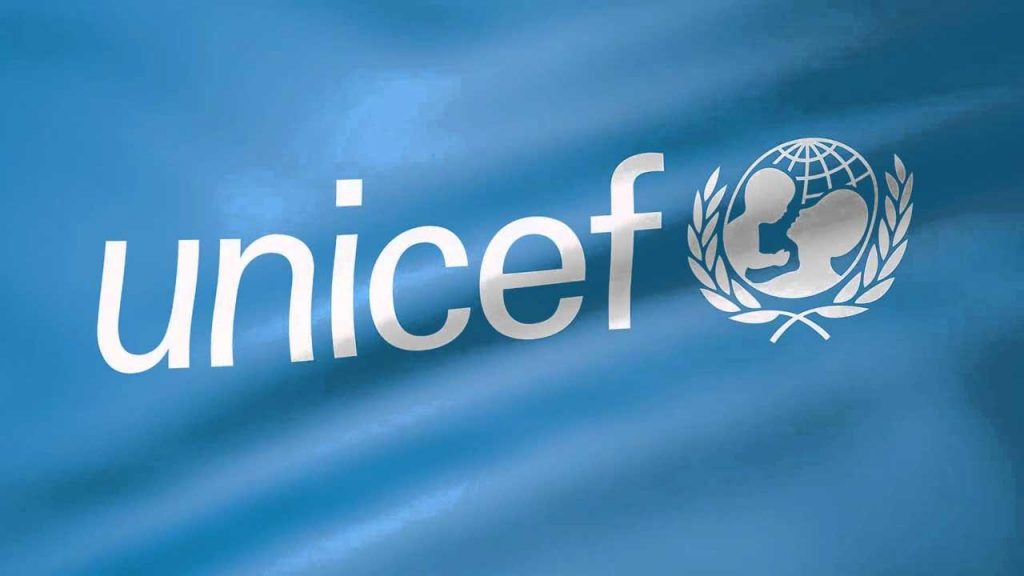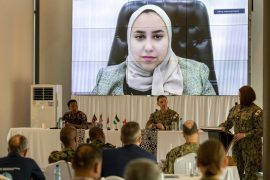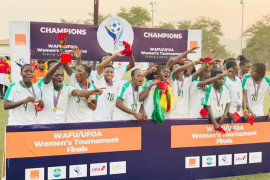The United Nations Children’s Fund (UNICEF) and the United Nations Population Fund (UNFPA) today signed a collaboration agreement to strengthen their cooperation in response to the humanitarian needs of children, adolescents, mothers and pregnant women in Venezuela.
In the past months, both United Nations agencies have been scaling up their humanitarian aid and development programs in Venezuela. Through this agreement, UNICEF and UNFPA will share information and technical resources in essential areas such as health, nutrition, child protection, water, hygiene and gender-based violence (GBV). Their strengthened collaboration will help meet the needs of children, adolescents and women more effectively.
“The situation in Venezuela urgently requires United Nations agencies to increase their cooperation in a coordinated and effective manner,” said Maria Cristina Perceval, UNICEF Regional Director for Latin America and the Caribbean. “This agreement will allow UNICEF and UNFPA to work together to reach more children and pregnant women with coordinated and integrated responses, taking into consideration the principles of humanity, neutrality, impartiality and independence.”
“Working together to alleviate the suffering of Venezuelan children, adolescents and women in vulnerable situations is crucial to guarantee a timely response,” said Esteban Caballero, UNFPA’s Regional Director for Latin America and the Caribbean. “This way, we can ensure the health, safety and well-being of the families and their communities.”
Both UN agencies will join efforts to develop strategies and implement priority actions that will:
Provide greater access to health services and guarantee the continuity of priority programs such as prevention of adolescent pregnancy and improvement of maternal and child health, with particular attention to newborns, adolescent pregnancy and teen mothers.
Expand interventions aimed at preventing nutritional deterioration, reducing the risk of increasing infant and maternal mortality, and improving the nutritional status of pregnant adolescents.
Strengthen protection networks and deliver assistance to children, adolescents and women with specific needs in departure, transit and hosting communities in Venezuela and neighboring countries, including risk of trafficking, abuse and sexual exploitation.
Improve water and sanitation services, as well as the promotion of appropriate hygiene practices, essential for the survival and development of boys and girls, with emphasis on menstrual hygiene.
Increase prevention and attention to gender-based violence cases against women, girls, children, adolescents and LGBTI persons in all collaborative sectors.
In 2019, UNICEF and its implementing partners in Venezuela have provided micro-nutrient supplements to nearly 12,000 children under 5, as well as pregnant and lactating women. In addition, around 29,000 people have had access to drinking water and hygiene items; about 20,000 children and pregnant women received treatment for malaria; more than 4,100 mothers gave birth safely thanks to the midwifery kits distributed by UNICEF; and more than 32,500 schoolchildren received educational and recreational materials.
In recent years, UNFPA has been working with the Government and civil society in Venezuela to ensure the delivery of dignity kits (feminine hygiene) to more than 18,000 women. Several primary health centers have been equipped with sexual and reproductive health supplies, including more than 10 million condoms, 75,000 intrauterine devices and 545,000 doses of contraceptive methods. UNFPA has trained more than 1,200 health officers to attend gender-based violence cases, who have managed to sensitize at least 3,500 migrant persons in the Venezuelan states bordering Colombia and Brazil.
Source: UNICEF




